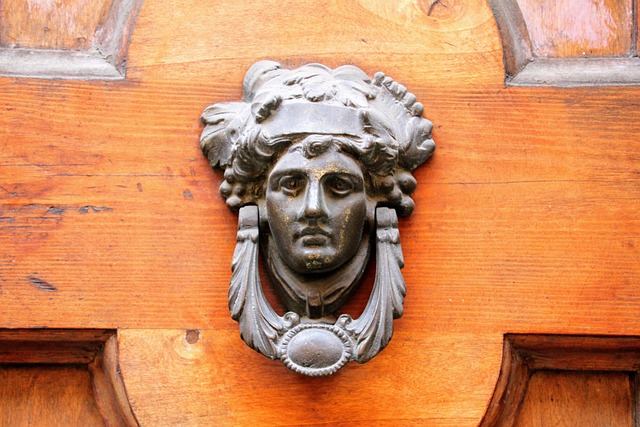Energy-efficient patio doors are designed for year-round comfort and environmental sustainability through advanced features like insulated cores, tight sealing systems, and low-E glass coatings. Solid-core construction, a key benefit, offers superior insulation, soundproofing, and privacy compared to hollow core models, reducing utility bills and external noise. When selecting, consider climate needs and desired level of privacy. Proper installation, including airtight seals and regular maintenance, maximizes energy efficiency and sound blocking capabilities.
Looking to enhance your home’s energy efficiency and sound insulation? Solid-core doors are a game-changer. This article delves into the world of energy-efficient patio doors, exploring their advanced construction, exceptional benefits for both energy retention and soundproofing, and how to choose the ideal model for your space. Discover expert installation tips and maintenance tricks to maximise performance and experience the difference these doors can make in your home.
Understanding Energy-Efficient Patio Doors: The Basics
Energy-efficient patio doors are designed to maximize comfort and minimize environmental impact by retaining heat during colder months and keeping out excess heat in warmer seasons. These doors operate on several key principles. Firstly, they feature an insulated core that prevents thermal transfer, thereby improving energy retention. This is often achieved through the use of materials like foam or composite cores that create a barrier between interior and exterior environments.
Additionally, energy-efficient patio doors are equipped with advanced sealing systems that create a tight seal around the door frame. These seals prevent drafts and air leaks, ensuring consistent indoor temperature. Many high-quality models also incorporate low-emissivity (low-E) coatings on their glass panels. These coatings reflect heat back into the room during cold weather and block intense sunlight to keep interiors cool in hot weather, further enhancing energy efficiency.
Benefits of Solid-Core Construction for Energy Retention
Solid-core construction plays a pivotal role in enhancing a door’s ability to retain energy, making it an excellent choice for those seeking energy-efficient patio doors. Unlike traditional hollow core doors, solid-core doors are crafted from a continuous piece of wood, eliminating the air pockets that contribute to heat transfer. This seamless design significantly reduces thermal conductivity, preventing warm air from escaping during winter and hot air from entering during summer.
By acting as an effective barrier against temperature fluctuations, solid-core doors can lead to substantial energy savings. They help maintain a comfortable indoor temperature, reducing the reliance on heating and cooling systems. This not only minimizes utility costs but also contributes to a more sustainable and environmentally friendly home.
Soundproofing Properties of Solid-Core Doors
Solid-core doors offer superior soundproofing properties, making them an excellent choice for homes seeking enhanced privacy and a quieter interior environment. These doors are designed with a robust core, typically made from materials like wood or composite, which acts as a barrier against outdoor noise. Unlike traditional hollow-core doors, solid-core doors don’t have any air spaces, eliminating the potential for sound transmission through the door’s structure.
When installed properly, solid-core patio doors can significantly reduce external noise levels, making them ideal for energy-efficient homes. This soundproofing benefit is particularly valuable in urban areas or near busy roads, ensuring residents enjoy a peaceful indoor space. The dense core also contributes to better insulation, further enhancing the energy efficiency of the door and the overall home.
Choosing the Right Solid-Core Door for Your Space
When selecting a solid-core door, understanding your space’s unique needs is key. Energy-efficient patio doors, for instance, require considerations beyond aesthetic appeal. Look for doors with an insulated core to maximize energy retention, especially in colder climates or if you’re aiming to reduce heating and cooling costs. The quality of construction and the type of wood used also play a significant role in soundproofing capabilities.
For spaces that demand enhanced privacy and noise reduction, opt for thicker solid-core doors made from denser woods like oak or maple. These options tend to offer superior soundproofing compared to thinner varieties. Additionally, consider door features such as weatherstripping and tight seals to further improve energy efficiency and minimize sound transfer between rooms.
Installation and Maintenance Tips for Optimal Performance
Proper installation is key to unlocking the full potential of solid-core doors for energy retention and soundproofing. When installing energy-efficient patio doors, ensure a tight seal around the frame to prevent air leaks. Use weatherstripping and caulk to create an airtight barrier, minimizing heat transfer and enhancing insulation. Regular maintenance, including cleaning the door tracks and adjusting hinges as needed, keeps the doors functioning optimally. Check for any signs of damage or wear and promptly replace worn-out components to maintain the door’s effectiveness in conserving energy and blocking noise.
Solid-core doors offer a compelling solution for homeowners seeking improved energy retention, soundproofing, and overall performance with their energy-efficient patio doors. By investing in these high-quality doors, you can create a quieter, more comfortable indoor space while reducing energy costs. With careful consideration during selection and proper installation, solid-core doors can significantly contribute to a more sustainable and livable home environment.
